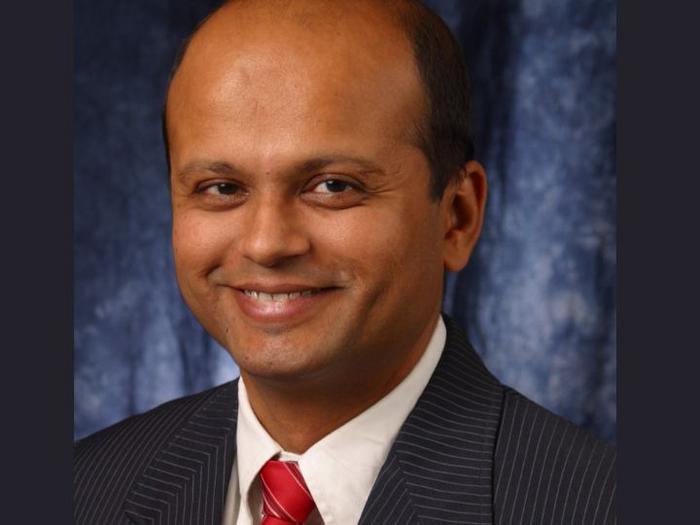University of Houston, associate professor of electrical and computer engineering Bhavin R. Sheth and former student Adam Jones, have introduced a groundbreaking approach to sleep stage classification that could replace the current gold standard in sleep testing, the cumbersome polysomnography, which uses a myriad of wires and is performed in a clinic. Their new procedure, which can be performed at home by the user, uses a single-lead electrocardiography-based deep learning neural network.

Credit: University of Houston
University of Houston, associate professor of electrical and computer engineering Bhavin R. Sheth and former student Adam Jones, have introduced a groundbreaking approach to sleep stage classification that could replace the current gold standard in sleep testing, the cumbersome polysomnography, which uses a myriad of wires and is performed in a clinic. Their new procedure, which can be performed at home by the user, uses a single-lead electrocardiography-based deep learning neural network.
If you’ve ever had a problem sleeping, and ended up in a sleep lab, you know the polysomnography test is anything but restful. With a multitude of leads – sensors and wires – dangling from every part of your body, you are asked to sleep, which is a state difficult to reach without such encumbrance, nearly impossible with it.
But what if the number of those electrodes – attached from your scalp to your heart – was reduced to simply two?
“We have successfully demonstrated that our method achieves expert-level agreement with the gold-standard polysomnography without the need for expensive and cumbersome equipment and a clinician to score the test,” reports Sheth in Computers in Biology and Medicine. “This advancement challenges the traditional reliance on electroencephalography (or EEG) for reliable sleep staging and paves the way for more accessible, cost-effective sleep studies.”
Even more, by enabling access to high-quality sleep analysis outside clinical settings, Adam and Bhavin’s research holds the potential to expand the reach of sleep medicine significantly.
Reliable classification of sleep stages is crucial in sleep medicine and neuroscience research for providing valuable insights, diagnoses and understanding of brain states. Although commercial devices like the Apple Watch, Fitbit and Oura Ring track sleep, their performance is well below that of polysomnography.
The electrocardiography-based model was trained on 4000 recordings from subjects 5–90 years old. They showed that the model is robust and performs just as well as a clinician scoring polysomnography.
“Our method significantly outperforms current research and commercial devices that do not use EEG and achieves gold-standard levels of agreement using only a single lead of electrocardiography data,” said Sheth, who is also a member of the UH Center for NeuroEngineering and Cognitive Systems.
“It makes less-expensive, higher-quality studies accessible to a broader community, enabling improved sleep research and more personalized, accessible sleep-related healthcare interventions.”
To that end Jones made the complete source code freely available for researchers, clinicians and anyone else interested at https://cardiosomnography.com
The collaboration also includes Laurent Itti at the University of Southern California.
Journal
Computers in Biology and Medicine
Article Title
Expert-level sleep staging using an electrocardiography-only feed-forward neural network
Article Publication Date
1-Jun-2024




